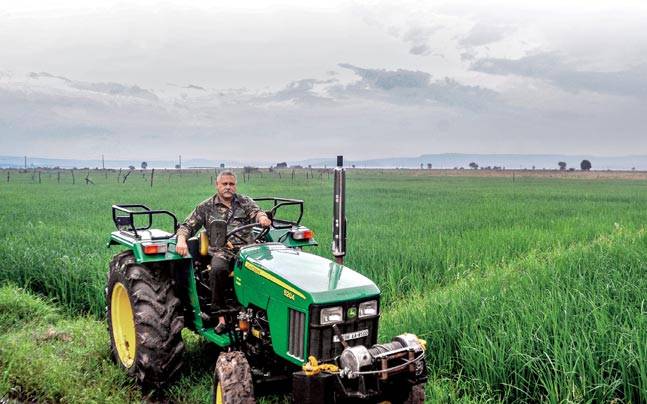Rice is a staple food in Asia and is therefore in constant demand. As a result, many businessmen have identified rice’s enormous commercial potential. However, before starting a rice business, people should think about a few things, just like they should with any other business. Because rice is such a popular food, the government has implemented several quality control measures to ensure that only hygienic and high-quality rice enters the market. Everything you need to know about beginning a rice business in India is included in this article.
India’s Rice Business Opportunities

Rice is the staple diet of about 70 percent of the world’s population. Rice is harvested in about 40,000 types around the world each year, showing the commodity’s diverse needs. Rice is a staple in India’s south, north-eastern, and eastern regions, where it is consumed daily. As a result, establishing a rice business in India is a great idea.
India’s good soil, favorable weather, and vast amounts of arable area make it ideal for rice cultivation. As a result, the rice business is critical to our agricultural sector’s success. We are also the greatest volume exporters of rice in the world and the most preferred. Because of our country’s reputation, the rice sector is a fantastic choice for aspiring entrepreneurs. Let’s look at the several types of rice enterprises that you can start in India.
Explore the Different Types of Rice Businesses
When it comes to starting a rice business in India, there are various options to consider. The following are some of the most frequent rice-related businesses in India:
- Rice cultivation
- dealership for rice
- Selling in quantity
- Business of rice milling
- Selling rice in retail
- Exports of rice
A huge piece of land, a good source of water, and labor are all required to start a rice farm. You’ll also need to be familiar with rice’s agricultural requirements and keep a close eye on the crop throughout the year. This is a more expensive alternative that necessitates much investigation. If you want to grow significant amounts of rice, you’ll also need to buy the best seeds, invest in fertilizer, and consider getting advanced agricultural equipment.
Rice dealerships, wholesale, resale, retail, and milling, on the other hand, do not necessitate substantial study or capital. Rice milling will necessitate a large initial capital investment to create a business and purchase equipment. However, unlike farming, where additional expenditures develop annually, once the mill is set up, you will be able to utilize it for decades without incurring any more costs other than periodic maintenance.
Dealerships and resale markets act as intermediaries, linking farmers with consumers. They don’t require a large amount of capital and can be quite profitable. All of this is to say that the type of rice business you choose should be based on your interests and resources.
In India, how can you start a rice business?
- To start a rice business in India, you must first apply for and receive a business license. When it comes to rice wholesale and retail companies, the majority of the rules that apply to rice dealerships apply to both. You can speak with us to get a better understanding of the legal requirements in your area. Legalizing and incorporating your firm is the greatest approach to ensure that your assets are safeguarded. You have the option of forming an OPC, an LLP, a partnership firm, or a private limited company for your business.
- Then you’ll need to find a warehouse or storage area that’s well-maintained and sanitary. To make transporting the rice to the end destination easier, choose a storage location that isn’t too far away from a town or metropolis.
- You’ll need to connect with farmers, wholesalers, retailers, or customers to either obtain or unload your supply once you’ve set up shop.
- You’ll also need to set up a distribution system that allows you to get your products and deliver them to your customers. All dealerships must provide delivery services.
- You might need to hire more staff as your business expands. It will be necessary to purchase additional vehicles and hire additional personnel. Consult us in such cases to ensure that you are sticking to all applicable labor laws.
- To avoid any of the rice from going bad, entrepreneurs must follow a FIFO policy (FIFO stands for “First-In, First-Out”).
- It’s also a good idea to offer a variety of rice to appeal to a wider range of customers. You’ll need to create a larger network of suppliers in this situation.
What Permits Are Required to Start a Rice Business?
- To proceed, you must first register your business.
- If necessary, complete the Udyog Aadhaar MSME registrations.
- Obtain a factory or trade license.
- Submit an application to your state’s pollution control board for a no-pollution certificate.
- Complete the PFA and ESIC registration if you have the required number of employees.
- Fill out an application for an FSSAI license.
- To file your taxes on time, complete your GST registration.
- Complete the IEC registration with the DGFT if you want to export your product.
What can we do to help you?
GetMyCompany’s experts will first discuss with you to determine the types of licenses and registrations that would best assist you to achieve your aim of starting a rice business in India. Our attorneys will then assist you in getting your paperwork in order. Following that, our team will complete the entire registration process in the shortest time possible.
You may also verify that your rice business is set up swiftly and efficiently with experienced assistance in any other duties relating to incorporation, licensing, and registration.

